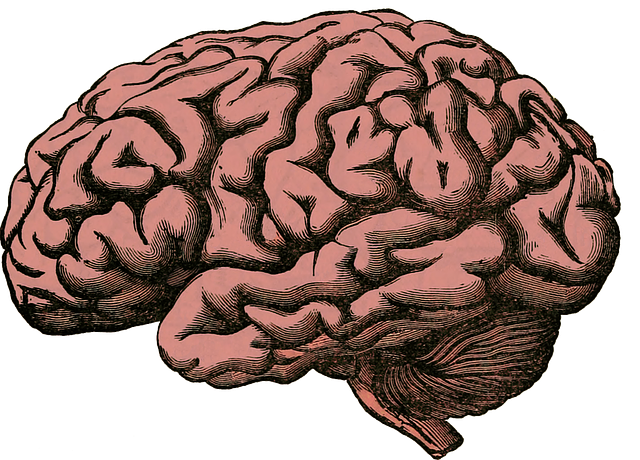Colorado Springs Gambling Therapy provides powerful tools for mental wellness improvement through mood regulation techniques, focusing on understanding emotional triggers, cognitive restructuring, mindfulness practices, and self-care. By addressing impulsive behaviors, addiction, and co-occurring mood disorders holistically, these strategies empower individuals to stabilize emotional states, boost confidence, and develop long-term coping mechanisms, fostering a more fulfilling and balanced life in the process.
Mood regulation is a vital aspect of maintaining mental well-being. This comprehensive guide explores effective strategies to manage and stabilize emotions, offering a holistic approach to enhancing overall quality of life. We delve into the impact of mood regulation on daily functioning and introduce practical methods such as identifying triggers, cognitive reframing, mindfulness, and the therapeutic benefits of Colorado Springs Gambling Therapy for those seeking professional support.
- Understanding Mood Regulation and Its Impact on Well-being
- Identifying Triggers: Recognizing Patterns in Emotional Responses
- Cognitive Strategies for Shifting Negative Thought Cycles
- Mindfulness Practices to Cultivate Present-Moment Awareness
- The Role of Therapy: Navigating Colorado Springs Gambling Therapy for Mood Stabilization
Understanding Mood Regulation and Its Impact on Well-being

Understanding Mood Regulation is a crucial aspect of enhancing well-being. Mood, a fleeting state of mind, significantly influences our day-to-day lives and overall mental health awareness. In Colorado Springs, where Gambling Therapy services are readily available, individuals seeking to improve their mental wellness can explore various strategies for effective mood regulation. These techniques aim to stabilize emotional states, fostering confidence boosting activities that promote balance and resilience in the face of life’s challenges.
By implementing these strategies, individuals can better navigate and cope with stress, anxiety, and even depression. Mood regulation isn’t just about achieving momentary happiness; it involves developing long-term mental health coping mechanisms. This process empowers folks to take control of their emotional well-being, leading to a more fulfilling and balanced life—a significant step towards Mental Health Awareness and overall personal growth.
Identifying Triggers: Recognizing Patterns in Emotional Responses

Understanding your emotional triggers is a powerful step towards effective mood regulation. In Colorado Springs Gambling Therapy sessions, clients often uncover recurring patterns in their emotional responses to certain situations or stimuli. By keeping a detailed journal to record these moments, individuals can identify specific triggers that set off their emotional reactions. This self-awareness is the foundation for changing maladaptive behaviors and replacing them with healthier coping strategies.
For example, someone struggling with anxiety might realize that their feelings are triggered by social interactions, leading to Self-Esteem Improvement sessions focusing on building confidence and refining Social Skills Training techniques. Alternatively, those dealing with past traumas may identify certain environments or memories as emotional triggers, initiating a journey of Emotional Healing Processes to process and resolve these underlying issues.
Cognitive Strategies for Shifting Negative Thought Cycles

Cognitive strategies play a pivotal role in shifting negative thought cycles, offering a powerful tool for mood regulation. One effective approach is to challenge and reframe negative thoughts using cognitive restructuring techniques. This involves identifying distorted thinking patterns, such as all-or-nothing thinking or catastrophizing, and replacing them with more realistic and balanced perspectives. For instance, if you find yourself thinking, “I always mess up,” you can counter this with evidence of past successes to create a more accurate self-assessment.
Incorporating Mind Over Matter principles into your daily routine can significantly aid in managing emotions. Engaging in regular self-care practices, like exercise, meditation, or journaling, empowers individuals to take control of their mental health. Additionally, these strategies offer an opportunity for self-reflection and the development of healthy coping mechanisms. By prioritizing a balanced lifestyle, including adequate sleep, proper nutrition, and social connections, individuals can reduce anxiety and improve overall well-being, making Colorado Springs Gambling Therapy more effective and sustainable.
Mindfulness Practices to Cultivate Present-Moment Awareness

In today’s fast-paced world, mindfulness practices have emerged as a powerful tool for cultivating present-moment awareness, particularly in areas like Colorado Springs Gambling Therapy where managing impulsive behaviors is crucial. By focusing on the here and now, individuals can learn to observe their thoughts and emotions without judgment, fostering inner calm and resilience. This heightened awareness allows for better decision-making and emotional regulation, essential components of personal growth and well-being.
Mind over matter principles form the foundation of these practices. Through dedicated meditation and mindfulness exercises, one can develop inner strength and boost confidence. By understanding and managing their reactions, individuals can navigate challenging situations more effectively, whether it’s dealing with gambling urges or other temptations. This empowerment comes from recognizing that thoughts are not facts, enabling a shift towards a more balanced and positive mindset.
The Role of Therapy: Navigating Colorado Springs Gambling Therapy for Mood Stabilization

In the pursuit of mood stabilization, Colorado Springs Gambling Therapy offers a specialized approach for those grappling with emotional regulation challenges. This form of therapy is particularly tailored to address issues related to impulse control and addiction, often intertwined with mood disorders. The process involves an in-depth exploration of individual experiences, providing a safe space to uncover and understand the underlying triggers affecting one’s mood. Trained therapists employ evidence-based techniques, such as cognitive-behavioral therapy (CBT), to empower individuals with effective coping strategies. By integrating mindfulness meditation practices, clients learn to stay present and cultivate positive thinking patterns, which are essential tools in navigating emotional ups and downs.
Colorado Springs Gambling Therapy goes beyond traditional talk therapy by incorporating cultural competency training for healthcare providers, ensuring a sensitive and inclusive environment. This training equips therapists with the skills to understand and respect diverse cultural backgrounds, making the therapeutic process more accessible and beneficial for all participants. The holistic approach combines evidence-based practices with a supportive setting, aiming to stabilize moods and promote long-term well-being.
In navigating life’s challenges, mastering mood regulation is a transformative skill. By understanding emotional triggers and employing evidence-based strategies like cognitive restructuring and mindfulness, individuals can gain significant control over their well-being. For those seeking specialized support, Colorado Springs Gambling Therapy offers a comprehensive approach to mood stabilization, integrating these strategies into a tailored treatment plan. Embracing these techniques empowers folks to lead more balanced, fulfilling lives, free from the relentless grip of negative moods.














